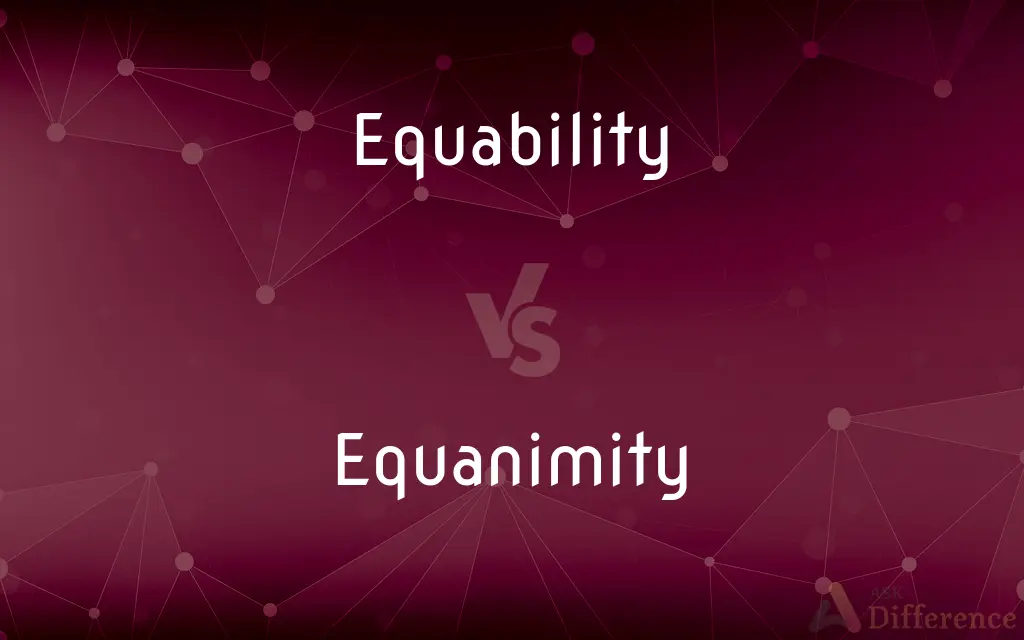Equability vs. Equanimity — What's the Difference?

Difference Between Equability and Equanimity
ADVERTISEMENT
Compare with Definitions
Equability
Unvarying; steady
"In the equable equatorial zone there is no such struggle against the climate" (David Campbell).
Equanimity
Equanimity (Latin: æquanimitas, having an even mind; aequus even; animus mind/soul) is a state of psychological stability and composure which is undisturbed by experience of or exposure to emotions, pain, or other phenomena that may cause others to lose the balance of their mind. The virtue and value of equanimity is extolled and advocated by a number of major religions and ancient philosophies.
Equability
Not easily disturbed; serene
An equable temper.
Equanimity
The quality of being calm and even-tempered; composure.
Equability
The condition of being equable.
ADVERTISEMENT
Equanimity
The state of being calm, stable and composed, especially under stress.
Equability
The quality or condition of being equable; evenness or uniformity; as, equability of temperature; the equability of the mind.
For the celestial bodies, the equability and constancy of their motions argue them ordained by wisdom.
Equanimity
Evenness of mind; that calm temper or firmness of mind which is not easily elated or depressed; patience; calmness; composure; as, to bear misfortunes with equanimity.
Equanimity
Steadiness of mind under stress;
He accepted their problems with composure and she with equanimity
Share Your Discovery

Previous Comparison
Shaggy vs. Fluffy
Next Comparison
Retrieve vs. Resume













































